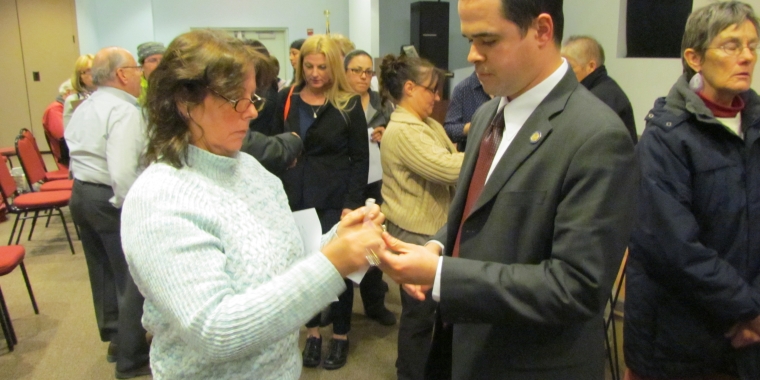
Senate Passes Domestic Violence Legislation
Martin J. Golden
June 12, 2012
-
ISSUE:
- Domestic Violence
Bill Represents Three-Way Agreement
The New York State Senate today passed legislation that will protect victims of domestic violence and establish stronger criminal penalties to punish individuals who commit acts of domestic violence.
The bill (S7638), sponsored by Senator Steve Saland (R-I-C, Poughkeepsie), Chairman of the Senate Codes Committee, and co-sponsored by Senator Martin J. Golden (R-C-I, Brooklyn) represents a three-way agreement among the Senate, Governor Cuomo and the Assembly. It includes several important provisions included in bills that have already passed the Senate this year, such as bail reforms and increased penalties for domestic violence crimes.
“This legislation builds on our commitment to combat domestic violence and protect innocent victims, which has always been a focus of our Senate Republican conference,” Senate Majority Leader Dean G. Skelos said. “Rather than politicize this issue as others have done, we’ve worked cooperatively with the Governor and Assembly to once again show that government can function and deliver on a critically important issue. I applaud the Governor for his leadership and commend Senator Saland and Senator Golden for helping us achieve a strong bill that will save lives.”
Senator Marty Golden (R-C-I, Brooklyn), a former New York City Police Officer stated, “This life saving bill creates better protections for victims of domestic violence from abuse and harassment in their homes and personal lives. Our society should not tolerate hateful acts of domestic violence and this new law will continue our state’s long standing tradition of protecting women’s rights. No one in the Empire State should have to live under the threat of violence and fear.”
Highlights of the domestic violence legislation include the following:
> Establishing a domestic violence fatality review team to examine factors involved in deaths related to domestic violence;
> Expanding factors for bail consideration including prior violations of orders of protection;
> Creating a new felony-level crime of Aggravated Family Offense, where the defendant and victim are members of the same family or household;
> Elevating the crime of Harassment from a violation to a Class A misdemeanor, where the defendant and victim are members of the same family or household; and
> Prohibiting a person who was served with an order of protection or charged in the death of a decedent from controlling the disposition of the person’s remains.
HIGHLIGHTS OF COMPREHENSIVE DOMESTIC VIOLENCE BILL
> Establishes within the Office for the Prevention of Domestic Violence a domestic violence fatality review team to examine factors involved in domestic violence homicides and suicides and make recommendations.
> Expands factors courts must consider when determining recognizance or bail for domestic violence crimes. The court must consider and take into account any prior violations of orders of protection and the defendant’s history of use or possession of a firearm.
> Prohibits a person who was served with an order of protection or arrested or charged in the death of a decedent from controlling the person’s remains.
> Creates a new crime of Aggravated Family Offense committed when one commits a “specified offense” and has been convicted of one or more such offenses within the immediately preceding five years. Aggravated Family Offense is a Class E felony. The victim does not have to be the same person or member of the same family or household.
> Among the crimes considered to be a "specified offense" are the following: Assault; Menacing; Reckless Endangerment; Stalking; Strangulation; Manslaughter; Murder; Sexual Misconduct; Rape; Sexual Abuse, Unlawful Imprisonment; Burglary; Predatory Sexual Assault of a Child; and Harassment.
> Increases the crime of Harassment from a violation to a Class A misdemeanor, where the defendant and victim are members of the same family or household;
> Allows a victim of domestic violence to request an alternative mailing address, telephone number or other contact information to receive specific health claim and billing information.
The bill was sent to the Assembly.


